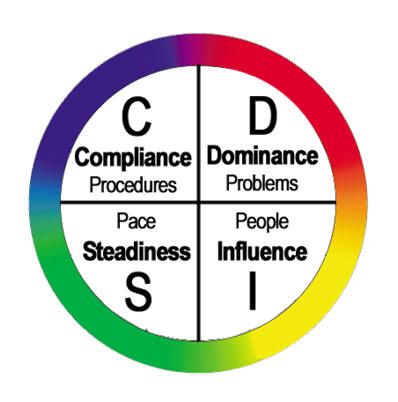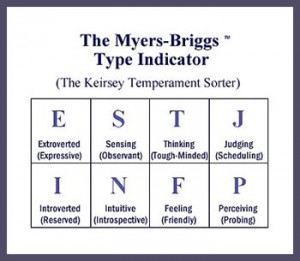“I’m an ENTP!”
“I’m a Rational-Inventor.”
At some point in our lives, we either have participated in or we will participate in a behavioral assessment.
Let me be very clear: Behavior assessments such as the DiSC® Profile, the Myers-Briggs Type Indicator®, and the Keirsey Temperament Sorter (the assessments representing the nomenclature above) all have tremendous validity. Thousands of people have subjected themselves to them, and their predictive value is rarely questioned.
When you last participated in one and asked those closest to you if the results really describe you, did you hear an emphatic “To a tee!”? Then you’re not alone.
Why do psychologists and coaches (and co-drivers) use such assessments? They paint a picture of our Knower/Judger—that part of us that we learned way back when we were little people and the big people ruled our world. We learned how to get attention. We learned how to get what we wanted or even if we could get what we wanted. We learned what limits we could cross and which would likely get us punished. Plus thousands more data points that became our “rules of life.” We were, in no small way, trained to be what we test out to be today.
These assessments are predictors of how we behave in certain situations. Our K/J is that part of us that “knows” automatically how to react to almost any situation. See the connection?
When we struggle with something or someone, or find ourselves stressed, it frequently is associated with some violation of one of our “rules” of life. Our rules tell us what to expect, and the situation does not meet those expectations. So our K/J (or DiSC profile, Myers-Briggs indicator) takes over and automatically responds.
Well, guess what? So does the other guy’s K/J. And what you’re saying is not meeting his expectations either. It’s a formula for struggle.
Maybe I’m a “high DISC C”, which means I follow the rules, color between the lines and always obey the speed limit. And I’m engaging in a discussion about how to proceed with some project with a “high DISC I.” My expectation is that others want to follow the rules and work “by the book”, while my counterpart’s expectations are to get this done no matter what it takes, even if it takes bending lots of rules. See the potential for a challenging conversation?
So we’re off…. “Gotta color between the lines.” “Gotta get it done—screw the lines.” … ad nauseum.
And you know what? I’ve had exactly this type of debate with this guy a dozen times. Will he never learn? (And here’s the point: You can’t tell which one of us said that!)
In close quarters (families, corporate departments, etc.), these patterns often repeat themselves. And, given the dynamics, they’ll likely continue to repeat themselves… unless someone changes their response.
Herein lies the concept of getting clear.
If this debate (or reasonable facsimile thereof) launches again, I have a choice. I can see that the other guy plays loosey-goosey with life in general, which offends my strong rule-following sensibilities. I can look into history and understand what has happened in the past (stress, yelling, lost productivity, bad feelings), and I can choose to respond differently from how I would normally respond.
Clearly I don’t want more stress. I don’t want the argument (for which I’ve heretofore held the other guy responsible). I don’t want to engage in a yelling match in front of my family or co-workers. So what can I do?
Here’s the funny part: Almost anything other than what your program has said over and over again. We’re both right and we’re both wrong. He sees the data differently than I do. And vice versa. In order for this not to go down as it always does, I need to see how he justifies his approach and he needs to see how I justify mine. And we can’t do that when we’re yelling at each other.
What does it take to stop the madness? Perhaps “I get it.” “You could be right.” “Let’s try that.”
When my adversary hears those words, he’s at least befuddled. (“That’s not what you’re supposed to say. You’re supposed to challenge me with your holier-than-thou rulebook.”) But, further, when he hears those words, his rules of life (he has them, trust me) no longer require him to defend his position. I’m at least on neutral ground to engage in looking at each other’s data.
Whether you’re a high D, I, ENTP, Analytical, whatever, sticking to those guns in stressful situations can add substantially to the struggle. Try stepping out of that predictable role just once and using different words. You’ll be amazed at the outcome.




